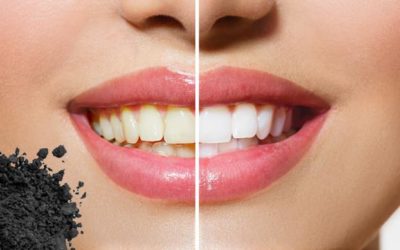The Facts About Fluoride
Fluoride was introduced to most Australian waterworks between the mid-1950s and the 1970s. Hailed as one of the greatest health achievements of the 20th Century, fluoride has been responsible for dramatically decreasing dental decay in the general population. Want to learn more about using this wonder-mineral to bolster the health of your teeth? Read on.
What is Fluoride?
Put simply, it’s a naturally occurring mineral found in bodies of fresh and salt water, rocks, plants, soil, grains and vegetables. The fluoride found in the environment is not enough on its own to have the desired effect on your teeth, which is why extra amounts are added to public water supplies, toothpaste and often administered during routine dental checkups.
What does it do?
Well, it doesn’t wear a superhero cape – but it probably should. It’s a cavity-fighting, decay-defending, tooth-strengthening wonder-mineral. Fluoride works by restoring minerals to the tooth enamel that may have been eroded by acid producing bacteria. It helps developing teeth become stronger and it slows the growth of bacteria-filled plaque in your mouth which can lead to tooth decay.
When you consider that a staggering 42% of children aged 5 – 10 have experienced decay in their baby teeth, 30% of adults are dealing with untreated tooth decay, and a shocking 1 in 25 Australians have no natural teeth[1], it’s a stark reminder that we should be doing everything possible to bolster the strength of our precious pearlies.
Is fluoridation of the water supply harmful?
Like with any health treatment, there are always going to be those who protest or question its benefits. Claims include that fluoride can cause health complications from cancer and bone fractures to allergies and arthritis – and even reduce your IQ. But there is currently no credible evidence to support such claims. Furthermore, organisations such as the World Health Organisation and Australia’s National Health and Medical Research Council (NHMRC) endorse water fluoridation as a safe and effective public health measure.
There is overwhelming scientific evidence pointing to the benefits of fluoride for healthy teeth. One study by the University of Sydney, reinforced the positive impact of fluoride in water supplies, widely debunking myths relating to the links between fluoride and health concerns. There’s no denying fluoride has had a positive impact on the reduction of tooth decay. [2]
Can you overdose on fluoride?
Too much of a good thing is never a good thing, but the amount of fluoride in our water supplies has been carefully calculated to ensure it is safe, so go ahead and drink as much tap water as you like. It is well known that drinking 1-2 litres of water a day, is beneficial for our overall health. Concerns are more likely to arise if small children who are not yet capable of rinsing while brushing their teeth, ingest large amounts of adult strength toothpaste. As such it is always best to use toothpaste designed for small children until they are old enough to rinse.
Why have fluoride at the dentist?
Fluoride applied by your dentist is most beneficial for children, as applications during childhood when teeth are first erupting into the mouth, actually modify the outer tooth surface. Thus toughened outer surface is more resistant to decay. For adults fluoride helps remineralise any areas of the tooth which may have started to demineralise or decay. Regular applications help protect teeth against decay, ensuring your teeth are strong and healthy for many years to come.
To book your next dental checkup, which is recommended every six months, please call us and make an appointment today. With numerous locations offering a comprehensive range of services, you’ll find the exceptional care and expertise you deserve.




